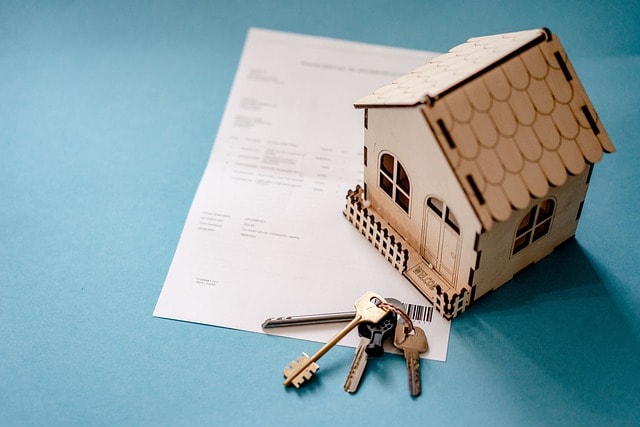Essential Guide to Lien on Property California: What You Need to Know

Understanding Liens in California
A lien in California represents a legal claim against property that serves as security for an unpaid debt or obligation. Whether you’re a homeowner facing potential contractor disputes, a property investor navigating tax implications, or simply trying to understand your rights, California’s complex lien laws can significantly impact your financial standing and property ownership. From mechanics’ liens filed by contractors to tax liens imposed by government agencies, understanding how liens work in the Golden State is essential for protecting your property rights and maintaining clear title to your real estate investments.
Would you like me to expand this into a more comprehensive article about liens in California? I can cover different types of liens, the filing process, how to remove liens, and more.
Definition of a Lien
- A lien is a legal claim or charge against a property to secure payment of a debt or obligation.
- Liens can be placed on real property, such as homes or land, or personal property, such as vehicles or equipment.
- Liens give creditors a way to collect debts by claiming an interest in the property.
Types of Liens in California
- Voluntary liens: placed with the property owner’s consent, such as a mortgage lien.
- Involuntary liens: placed without the property owner’s consent, such as a tax lien or judgment lien. Unpaid property taxes can lead to involuntary tax liens that attach to the property without the owner’s consent.
- Specific liens: attached to a specific piece of property, such as a mortgage lien.
- General liens: attached to all of the property owner’s assets, such as a judgment lien.
Priority of Liens
In California, the priority of liens is determined by the type of lien and the date it was recorded. Generally, the first lien recorded has priority over subsequent liens. However, there are exceptions to this rule. For example, a tax lien takes priority over all other liens, regardless of when it was recorded. A judgment lien, on the other hand, takes priority over other liens only if it was recorded before the other liens.
It’s essential to understand the priority of liens when dealing with multiple liens on a property. If a property owner owes money to multiple creditors, the priority of liens determines which creditor gets paid first. In some cases, a creditor may choose to subordinate their lien to another creditor, which means they agree to take a lower priority.
Who Can Put a Lien on a Property?

Can a Creditor Put a Lien on My House for Unsecured Debt?
- Yes, a creditor can place a lien on a property for unsecured debt if they obtain a court judgment.
- The creditor can then record the judgment with the county recorder’s office to create a lien on the property.
- The lien gives the creditor a way to collect the debt by claiming an interest in the property. If the debt remains unpaid, the creditor can enforce the lien to collect the debt.
Can a Family Member or Spouse Put a Lien on My House?
- Yes, a family member or spouse can place a lien on a property if they have a legitimate claim against the property owner.
- The family member or spouse must obtain a court judgment or have the property owner’s consent to place the lien.
- The lien can be used to secure payment of a debt or obligation.
How to Put a Lien on Property in California
Filing a Lien with the County Recorder’s Office
- To place a lien on a property, the creditor must file a lien document with the county recorder’s office.
- The lien document must include the property owner’s name, the property description, and the amount of the debt.
- The creditor must also pay a filing fee to record the lien.
Recording a Lien with the County Assessor’s Office
- In addition to filing with the county recorder’s office, the creditor may also need to record the lien with the county assessor’s office.
- This is typically required for tax liens or other types of liens that affect the property’s tax status.
- The creditor must provide the assessor’s office with the necessary documentation and pay any required fees.
Judgment Liens in California

Definition of a Judgment Lien
- A judgment lien is a type of lien that is created when a creditor obtains a court judgment against a property owner.
- The judgment lien gives the creditor a way to collect the debt by claiming an interest in the property.
- Judgment liens can be placed on real property or personal property.
How to File a Judgment Lien
- To file a judgment lien, the creditor must obtain a court judgment against the property owner.
- The creditor must then record the judgment with the county recorder’s office to create the lien.
- The creditor must also provide the property owner with notice of the lien.
Effects of a Lien on a Property Owner
Immediate Consequences of a Lien
- A lien can prevent the property owner from selling or refinancing the property.
- A lien can also affect the property owner’s credit score.
- The property owner may be required to pay off the lien before they can transfer ownership of the property.
Long-term Consequences of a Lien
- A lien can remain on the property for many years, even if the property owner is making payments on the debt.
- A lien can also increase the property owner’s tax liability.
- The property owner may be at risk of losing the property if they are unable to pay off the lien.
Impact on Property Sale
A lien on a property can significantly impact its sale. When a property is sold, the buyer typically wants to ensure that the property is free of liens. If a lien is discovered during the sale process, the buyer may request that the seller pay off the lien or negotiate a lower price. In some cases, the buyer may even back out of the sale if the lien is not resolved.
If a property owner owes money to a creditor and the creditor has placed a lien on the property, the property owner may not be able to sell the property until the lien is paid off. This can be a significant problem for property owners who need to sell their property quickly.
Removing a Lien from a Property

How to Obtain a Lien Release
- To remove a lien from a property, the property owner must obtain a lien release from the creditor.
- The lien release must be recorded with the county recorder’s office to remove the lien from the property records.
- The property owner may need to pay off the debt or negotiate a settlement with the creditor to obtain the lien release.
Recording a Lien Release
- Once the property owner has obtained a lien release, they must record it with the county recorder’s office.
- The lien release must be recorded in the same county where the lien was recorded.
- The property owner must pay a filing fee to record the lien release.
Disputing a Lien
If a property owner disputes a lien, they can take several steps to resolve the issue. First, they should review the lien documents to ensure that the lien was properly recorded and that the creditor followed the correct procedures. If the property owner believes that the lien is invalid, they can file a lawsuit to have the lien removed.
In some cases, a property owner may be able to negotiate with the creditor to have the lien removed or reduced. This can be a good option if the property owner owes money to the creditor but is unable to pay the full amount. By negotiating with the creditor, the property owner may be able to reach a settlement that satisfies both parties.
It’s essential to seek legal advice when disputing a lien. A real estate attorney can help property owners understand their rights and options and can represent them in court if necessary. By working with an attorney, property owners can ensure that their rights are protected and that they receive a fair outcome.
Frequently Asked Questions About California Liens
What exactly is a lien in California?
A lien is a legal claim or hold on a property that allows a creditor to secure payment of a debt. If the debt remains unpaid, the lienholder may have the right to force the sale of the property to recover what they’re owed.
What are the common types of liens in California?
The most common types include mechanics’ liens (for unpaid construction work), tax liens (from unpaid property or income taxes), judgment liens (from court rulings), HOA liens, and mortgage liens.
How long does a lien stay on property in California?
It varies by lien type. Mechanics’ liens generally expire after 90 days unless a lawsuit is filed. Judgment liens last 10 years and can be renewed. Tax liens typically remain until the debt is paid.
Can someone put a lien on my house without my knowledge?
Yes. While you should receive notice, liens can sometimes be filed without your immediate knowledge. This is why regular title searches are important for property owners.
How do I find out if there’s a lien on my property?
Check with your county recorder’s office or hire a title company to perform a title search. You can also review your property tax records or request a property profile from a title company.
How can I remove a lien from my property?
The most straightforward way is to pay the debt. Other options include negotiating a settlement, disputing an invalid lien through court action, or waiting for the lien to expire (though this doesn’t eliminate the underlying debt).
Can I sell my property if it has a lien?
Yes, but the lien will need to be addressed during the sale process. Typically, the lien amount is paid from the sale proceeds before you receive any money.
What is a “preliminary notice” related to mechanics’ liens?
In California, contractors and suppliers must generally provide a preliminary notice within 20 days of first furnishing labor or materials to preserve their right to file a mechanics’ lien later.
Can a contractor put a lien on my property if I’m unhappy with their work?
Yes, they can file a lien even if you dispute the quality of work. You’ll need to address the lien through legal channels while simultaneously pursuing any claims about workmanship.
What’s the difference between voluntary and involuntary liens?
Voluntary liens (like mortgages) are those you agree to, while involuntary liens (like tax or judgment liens) are imposed without your consent.
Would you like me to expand on any of these questions or add additional FAQs about specific lien situations in California?
Related Terms: Debtor owns real estate, unpaid debts, debtor’s property, property liens, debtor sells, initiate foreclosure proceedings, mortgage liens













